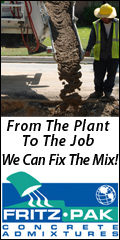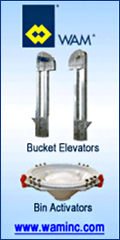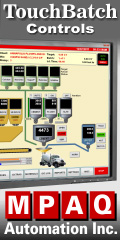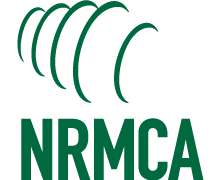
| Archive | nrmca.org | E-Store | Conferences & Events | Certifications | InFocus |
NRMCA Opposes On Board Electronic Device Language in New Transportation Bill In addition to the current lobbying and grassroots efforts of the Government Affairs team in favor of a new, multiyear, fully-funded transportation bill that would include the NRMCA-supported fly ash language, NRMCA is also now addressing a new issue in the transportation debate. Starting this week, the NRMCA Government Affairs team began lobbying to oppose including language in a final compromised transportation bill that would direct the Secretary of Transportation to "prescribe regulation" mandating that commercial motor vehicles engaged in interstate commerce purchase, install and use electronic on-board recorders (EOBRs), instead of the current handwritten logbooks, for compliance with Hours of Service (HOS) regulations.
This same type of regulation has already been proposed by the Federal Motor Carrier Safety Administration (FMCSA). However, unlike the Senate’s version, FMCSA is currently abiding by a federal court order to redo erroneous portions of the rule before it can be ready for implementation. Also different from the Senate’s version, FMCSA included a provision in its proposed rule to exempt short-haul operators like ready mixed concrete truck drivers. The low-end side estimate of the cost to the industry, based on FMCSA data, would be roughly $60 million just to meet the implementation timeline. This number does not include the annual cost for maintenance or operations. Responding to a letter for regulatory information last April from Speaker of the House John Boehner (R-8-OH), President Obama listed the EOBR rule as one of seven rules currently being proposed that will cost upwards of $1 billion to implement.
Due to the harmful potential of the Senate’s language on EOBRs, our message will be that the industry is opposed to mandating EOBRs. In addition to the cost arguments, the industry also does not need this to be forcefully imposed due to the shorter driving times and distances of short-haul operators. In addition, certain exemptions have already been afforded to short-haul operators to lessen the reporting burden, showing that EOBRs are not necessary for concrete trucks. Lastly, since FMCSA has already proposed such a rule, Congress’ intervention is unnecessary.
For more information, contact NRMCA's Kevin Walgenbach at kwalgenbach@nrmca.org.
|
|
|




